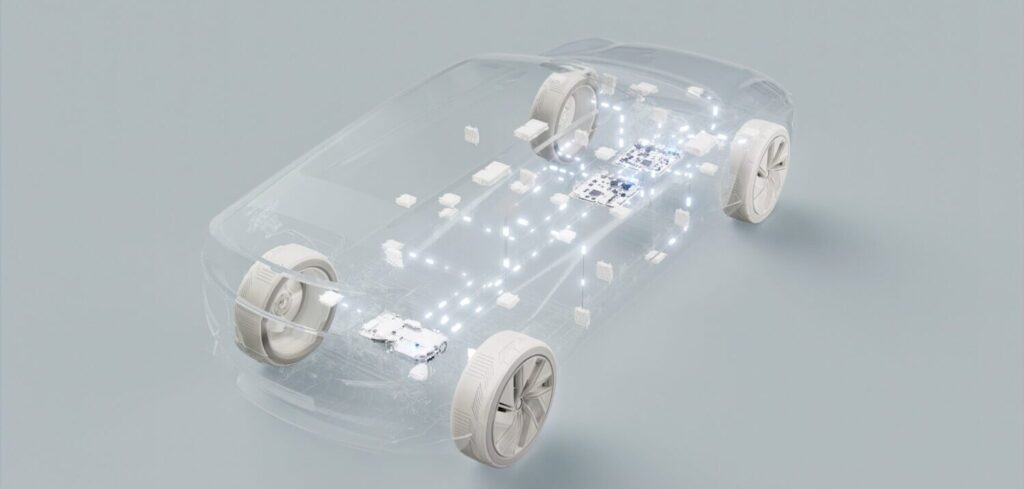Swedish auto maker Volvo has announced it is to take software development in-house, with vehicles’ appeal increasingly becoming more defined by software-driven functions and features than by traditional automotive attributes.
The next generation of electric Volvo models, including the company’s first SUV on a new electric-only platform, will run on its own operating system (OS), called VolvoCars.OS, which the manufacturer says will enable faster and more flexible development.
VolvoCars.OS will act as an umbrella system for the brand’s EVs, and will incorporate the company’s various operating systems across the car and the cloud, creating one coherent software OS environment. The underlying operating systems include Android Automotive OS, QNX, AUTOSAR and Linux.
Through a variety of application programming interfaces (APIs), including its previously announced Extended Vehicle API, the VolvoCars.OS will give developers access to in-car features such as vehicle sensor data, user interfaces and cloud-based features such as fleet data, subject to customer consent.
“By developing software in-house we can boost development speeds and improve your Volvo faster than we can today,” said Henrik Green, CTO at Volvo. “Just like on your smartphone or computer, new software and features can be rolled out swiftly through over-the-air updates, making your Volvo better and even more enjoyable over time.”
To truly benefit from developing software in-house, Volvo says it is also centralizing computing inside its fully electric cars into a core system, thereby removing complexity. Rather than relying on multiple electronic control units around the car that control individual features and systems, an increasing amount of in-house-developed software will run on a single, powerful core system.
The core computing system, due to be revealed on a Volvo model set to be launched in 2022, is made up of three main computers. These support each other in operating vision processing and artificial intelligence, general computing and infotainment functions respectively.
The shift to centralized computing will also assist Volvo in separating hardware from software, in turn allowing for shorter hardware cycles, easing the process of equipping new models with the latest available hardware.
The company is to collaborate with a number of tech companies on the OS development, including Nvidia, with whom it is working on the core systems, and Google, its co-development partner for the infotainment systems.
“We have a deliberate strategy of partnering with true technology leaders where it makes sense,” added Green. “Google is a true leader in user experience and services, from Google Maps to Google Assistant, while Nvidia gives us access to some of the fastest and best computing available. This approach of selected strategic partnerships is much more effective than trying to do everything on our own.”


